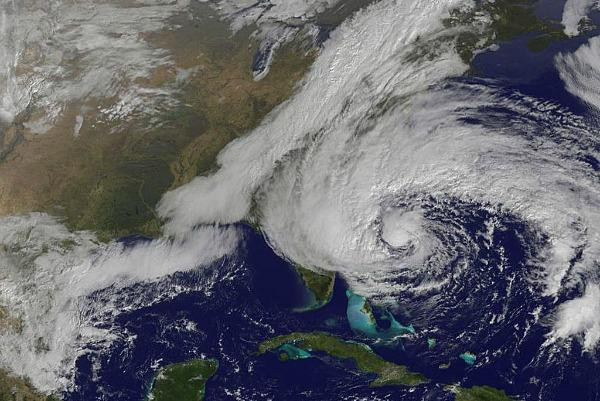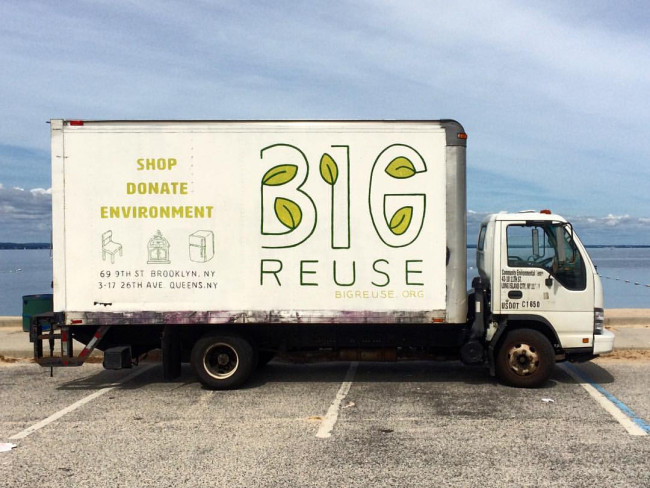What lurks below: Paint cans, fuel, and other dangers that make your NYC basement unsafe

Clearing out the basement might be more than therapeutic—it could save your life.
iStock
When the heating failed in our single-family rental, the technician who fixed the furnace said the paint cans stashed nearby were a violation of NYC fire department codes. It had not occurred to me that they were a problem. Looking around the messy boiler room and the crudely finished basement, I wondered what other hazards were lurking there.
I reached out to some experts and apparently, it's very common for NYC residents to be unaware of just how dangerous it is to store cans of paint, fuel or other chemicals in their basement, which are often also filled with flammable materials. It turns out there are several simple steps you can take to make your basement a lot safer. Read on to give your basement a safety check-up.
One of the most important steps you can take is to install some monitoring devices, which can give you precious minutes to get out in case of an emergency. “You need a smoke, heat, and carbon monoxide detector by your boiler,” says Jeff Schneider at Gotham Brokerage (a Brick Underground sponsor). “Most insurers require it and it can save your life.”
Steve Elbaz, president of Esquire Management Corp, has 30 years experience maintaining and managing properties in New York City. My basement would not have been unique to him.
“The biggest headache is people storing combustibles near a furnace in the basement, not just flammable paints and liquids but furniture and mattresses. People put these things in the basement thinking it’ll be temporary and 15 years later they’re still there," he says.
Any kind of fuel is a dangerous
Storing anything flammable near an ignition source, like the boiler, is a safety hazard. For Elbaz, charcoal and gas BBQs are an issue, because people store often store cans of lighter fuel near them. The also city has rules about propane tanks. One- or two-family properties can store a maximum of two, 20-pound cylinders outside the building. They should never be stored inside.
The city’s garbage disposal won’t collect the tanks because they can explode when they’re crushed. Instead, you’re encouraged to exchange or recycle them.
“Few people know they don’t own their propane tanks,” says Elbaz, “they should be returned to a hardware store.” He adds, “sometimes a harmless hobby isn’t necessarily safe. Fuel can be dangerous. I had one tenant who used to fly model airplanes on the weekend. I found he was storing the gas and oil for his planes in the basement.”
“I’ve seen paint and thinners stacked by a furnace as well as cardboard boxes and plastic bags full of clothes,” says Sam Silver, a technician with J&J Mechanical Services. “Most of this is a violation. If building inspectors see that, they’ll give a warning and then a fine.”
Boiler rooms should never be used for storage
City rules say furnaces used to heat one- or two-family dwellings, need to be enclosed and separated from the rest of the building and sealed with a fireproof door. In most basements, there’s a boiler room, an electrical room and a room where the gas meters are installed.
Elbaz says “I’ve seen storage in all of these rooms. We had one guy who had a full-blown wood shop in the basement. Storing a dozen logs would be fine, but he had two or three thousand feet of lumber plus sawdust, which is highly combustible."
You need to be able to move around easily
Although latex paints aren’t flammable, it’s not a good idea to store them if they block either movement or ventilation in a basement. The same applies to bulky items that don't necessarily pose a fire risk. This is a particular problem where there are residential and commercial properties in the same building.
“If there’s a retail space on the ground floor, the retail tenant will often be using the basement for storage," says Elbaz. "There should be 18 inches of clearance from the ceiling so the sprinkler system can do its job if there's a fire. If the area is jammed with storage it will block and obstruct the fire alarm and the sprinkler.”
Cold air can freeze pipes
Poorly insulated basements can get cold in the winter, which can be a problem if pipes are exposed there. Elbaz warns, “if there are windows in the basement, and they are ever left open or a pane falls out and isn’t mended, that can be enough to freeze pipes.”
Schneider recommends a low-temperature sensor. “It can alert you in time to prevent a major mid-winter pipe break.” He adds, “it’s always a good idea to have some sort of water detection in place by the boilers as well. You want to know as soon as possible if there’s a leak, and if there's an actual break you want to start the clean-up fast.”
Beware of outlet strips
Overloaded electrical wires are another hazard if there are appliances in the basement. Elbaz cites as an example, a prewar building with 30 amps of power going into the building, “well, these buildings were built before our reliance on everything from hairdryers to microwaves and 60” TVs. People will buy outlet strips and the wires can overheat.” This obviously applies within an apartment, but if you are using the basement for DIY or any purpose that has you overloading an outlet, it’s worth double checking its safety.
Who pays for violations?
It’s the tenants who are at risk if there’s a violation. A fine follows, and it’s the building owner who pays. Elbaz suggests installing cameras for additional security.
Schneider points out there are devices that can be hooked into an existing alarm system. “There's also a new generation of internet-connected detection devices. They aren't expensive and often you can get an insurance credit when you use them. It is essential to have insurance, but even better to avoid some of these situations in the first place."
You Might Also Like




























